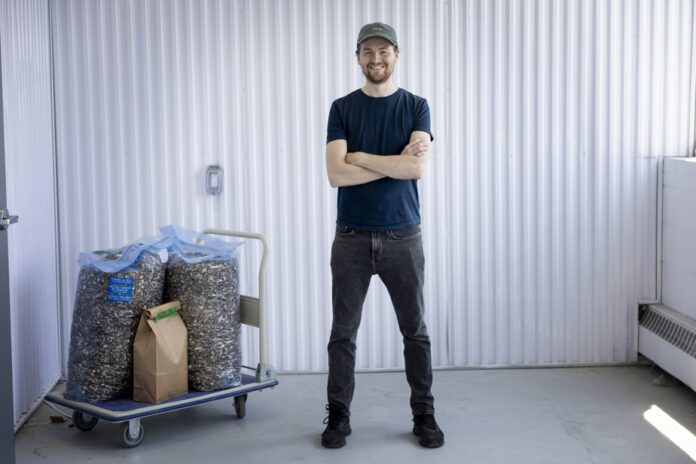Can a risotto, ramen and daal come from the North? Absolutely – especially if we have (discreetly…) added little boreal ingredients here and there. This is precisely what Dunord does, with its ready-to-cook gourmet meal sachets.
Jonathan Dumas had two ideas in mind when he started his business last year: to make convenient and local ready-to-cook, but using ingredients collected from local farms.
“I worked in the food industry and saw a need for easy-to-eat meals that didn’t take a lot of time to cook because we’re all busy,” says the entrepreneur. I wanted them to be inexpensive and have minimal environmental impact. Dehydration set in. It allows me to take surpluses from Quebec farms and dehydrate them. »
By integrating downgraded products into its production, Dunord is helping to reduce food waste, which is at the heart of its founder’s values.
Dehydration also makes it possible to keep ingredients longer, while waiting to integrate them into a meal, when production orders it.
There are three Dunord dishes: a boreal daal, a forest risotto, and a gaspesian ramen. The marriage between a dish clearly identified with international cuisine and its very local qualifier is not fortuitous. From the start, in his business philosophy, Jonathan Dumas wanted to include wild ingredients from Quebec. What he did.
The sachets are super practical – you add water and oil. Outdoor enthusiasts who are also gourmets will undoubtedly find it of interest. The products are also intended to be prepared at home. Perhaps more, even, in the case of risotto, specifies the entrepreneur. Because it takes almost 30 minutes to prepare – which requires some (but not impossible) patience on the fireside while camping.
One sachet has two servings. “We mostly have an urban clientele,” says Jonathan Dumas. The brand image and the healthy and organic ingredients are very popular. “It’s intentional, I wanted to reach that clientele. »
Naturally, the Centrale agricole de Montréal was also included in this project. This unique place is a cooperative space where several small businesses, which work around food, share equipment and knowledge. This is now where Jonathan Dumas works, which has expanded his network of collaborators. Dunord now works with Tangui Conrad who does all the dehydration for him, with equipment from the Centrale. There is a possibility to dehydrate 300 kilos of vegetables per day, on site.
“We are circular economy enablers,” says Tangui Conrad, whose company, Boomerang, specializes in the processing and recycling of spent beer.
The day of our visit to the Centrale, Jonathan had collected shiitake mushrooms that did not meet the standards of the producing farm, because they were too small. However, they will be perfect for Dunord ramen, once dehydrated.
Dunord is experiencing gentle growth. After almost a year of existence, the company plans to hire its first employees this summer – for the moment, the business model rather includes collaborators who share the tasks. Jonathan also tests new products in Dunord boxes, a subscription formula for fans who are thus entitled to exclusives. “The subscription service is our laboratory,” says Jonathan Dumas. If a farm has a surplus of red peppers, they might be tempted to salvage them to create a unique dish. “It allows me to test recipes that could one day be marketed. »
Currently, the company produces between 3,000 and 5,000 meals per month. It sells online and has around 40 points of sale in the province. Mainly small delicatessens, but also the Lufa Farms service.















